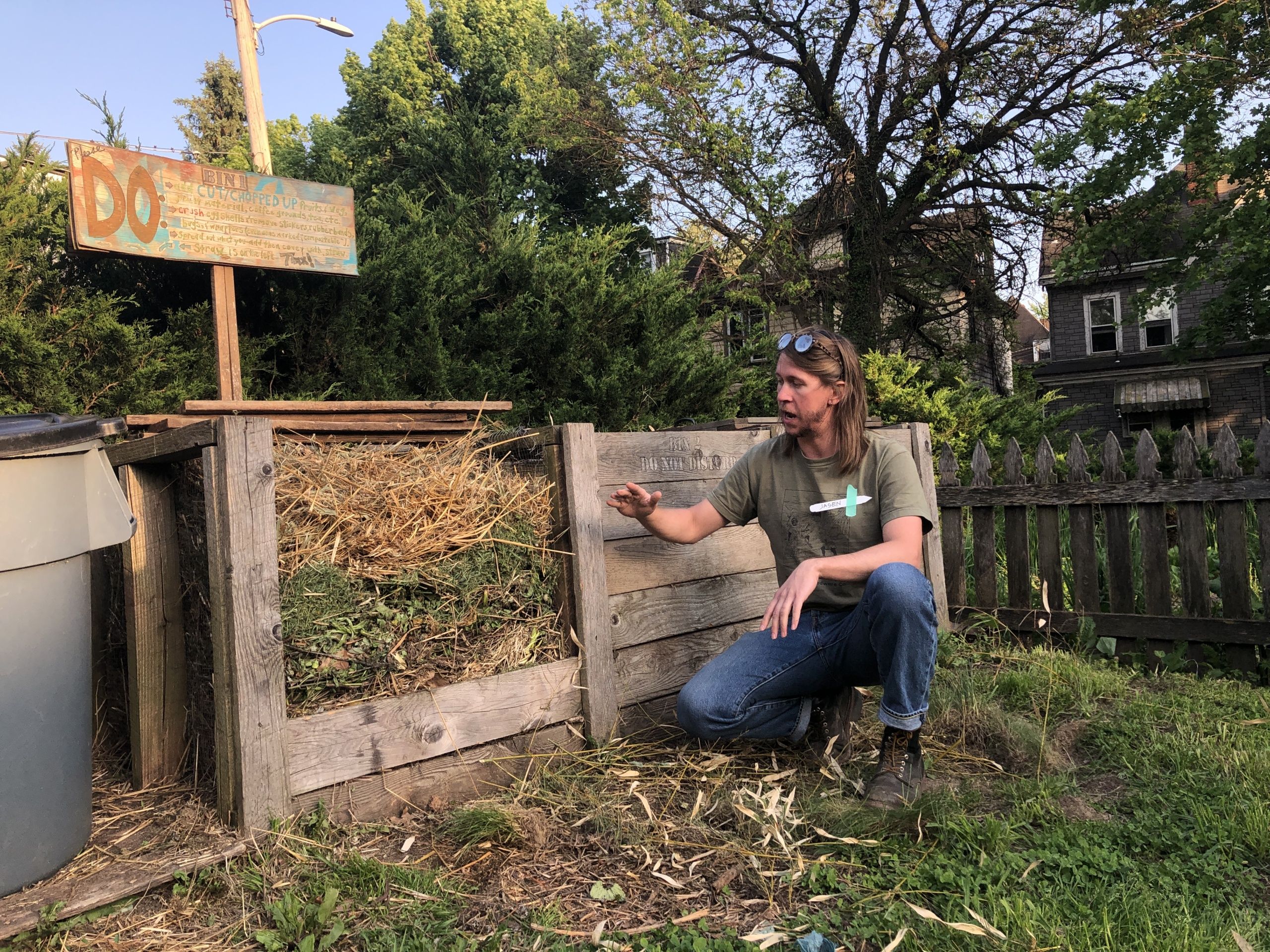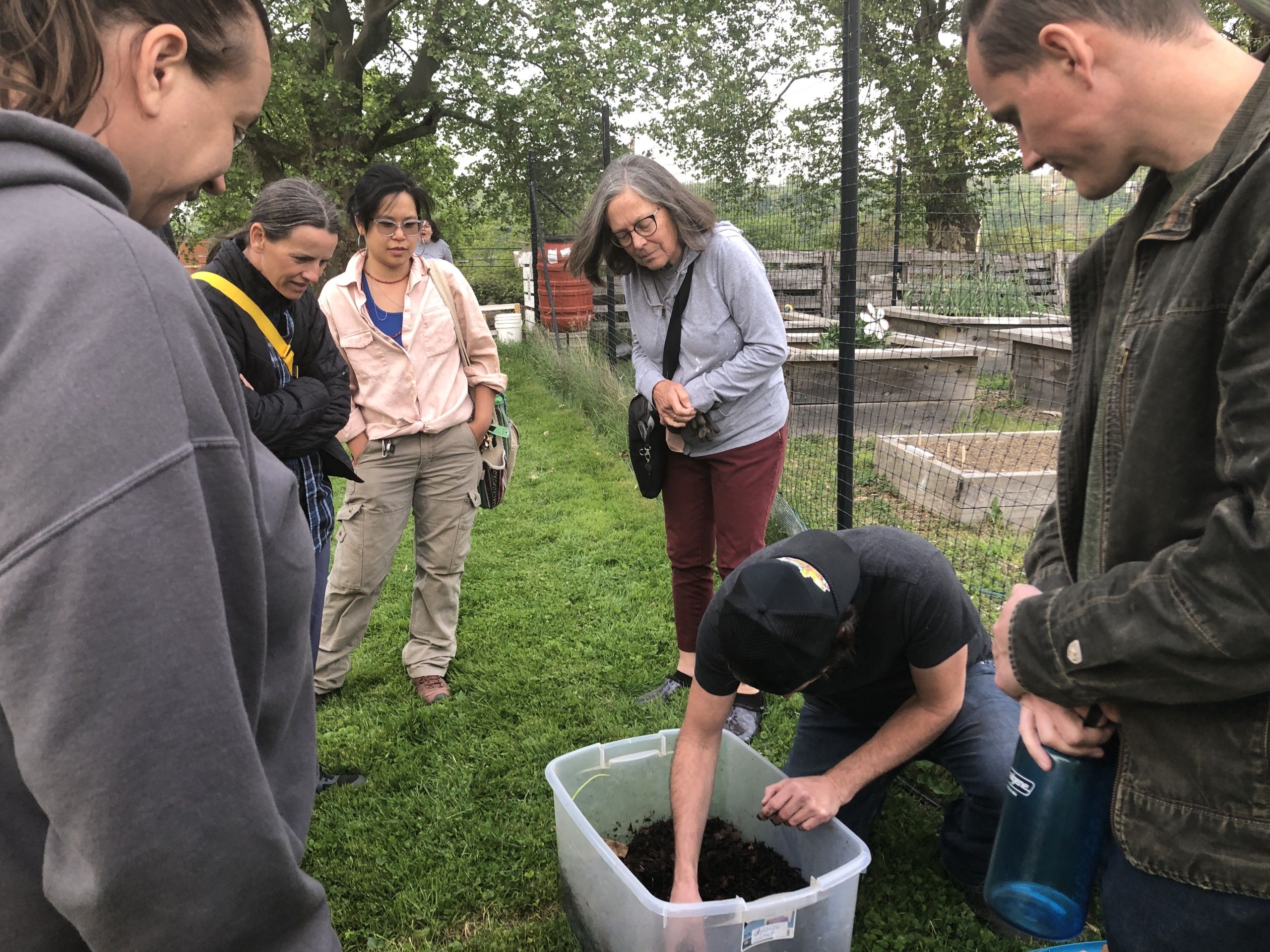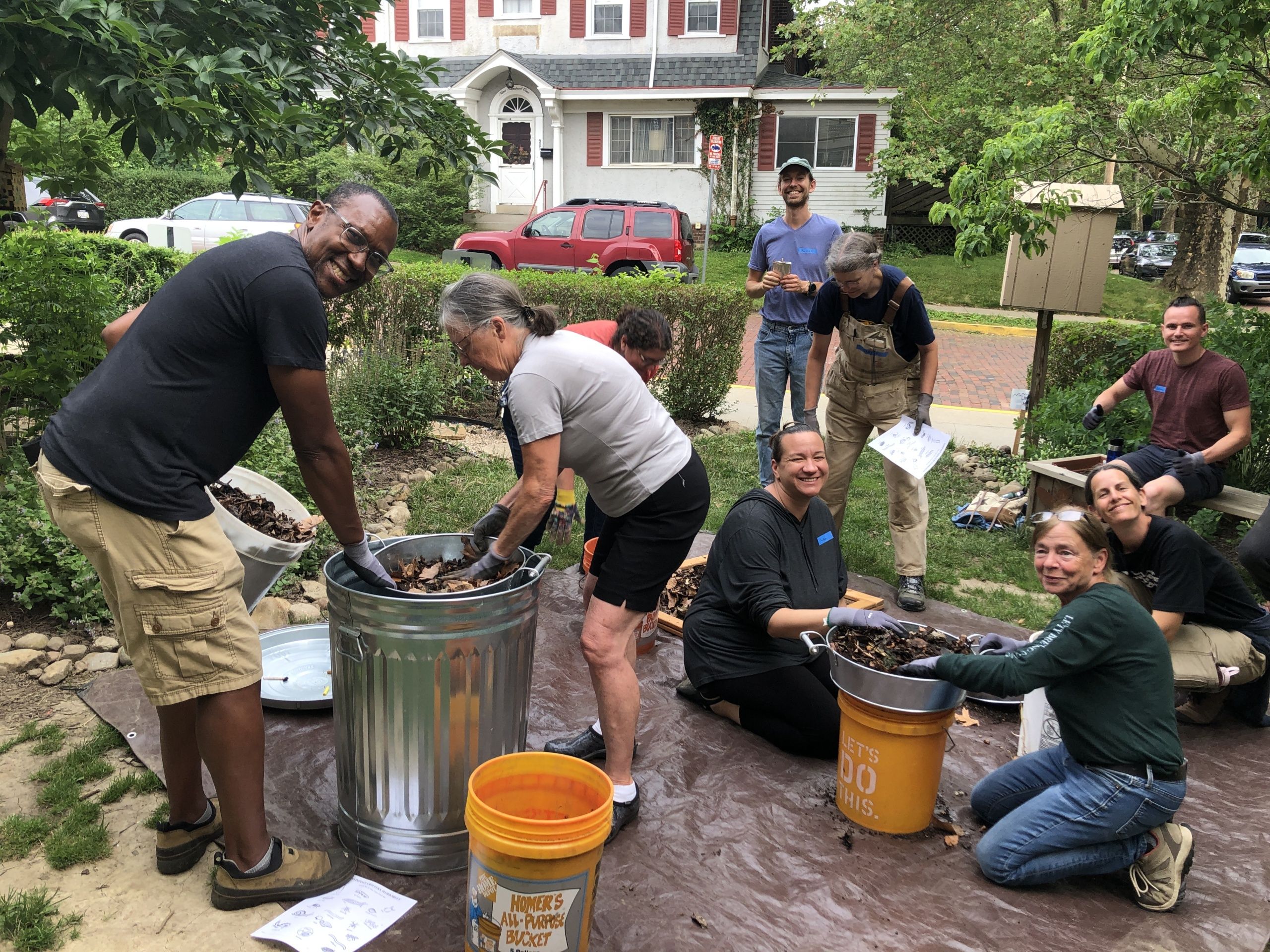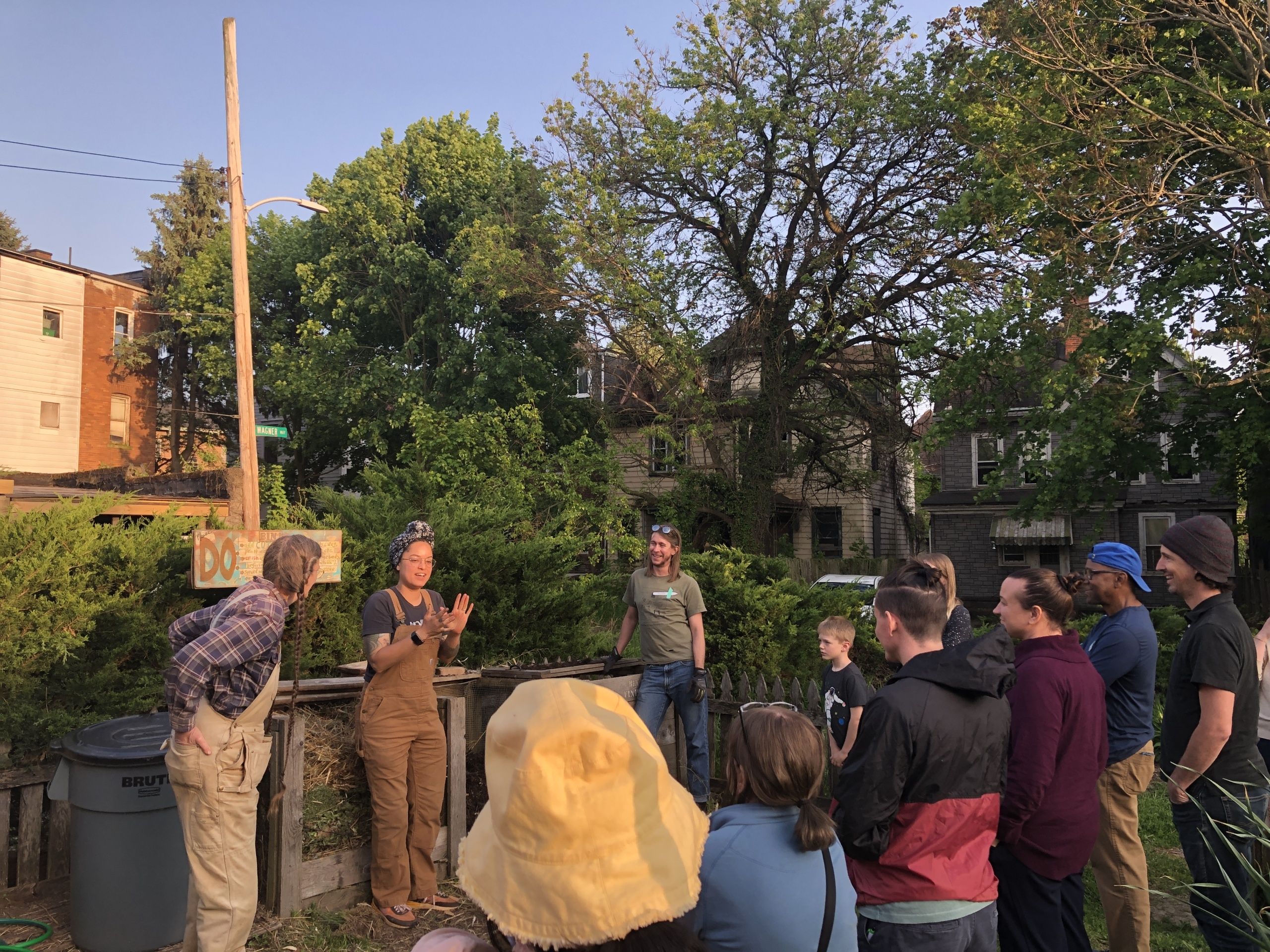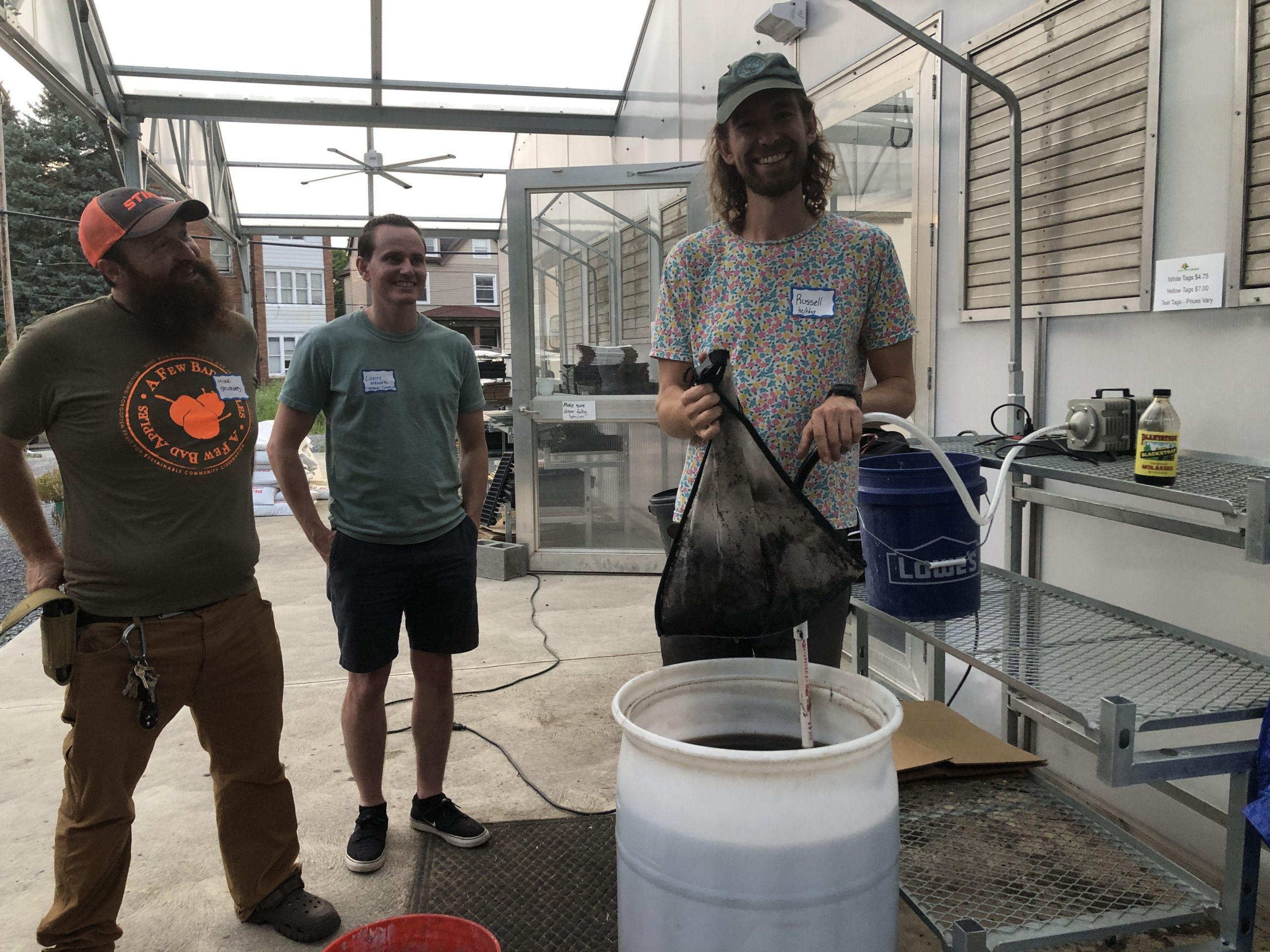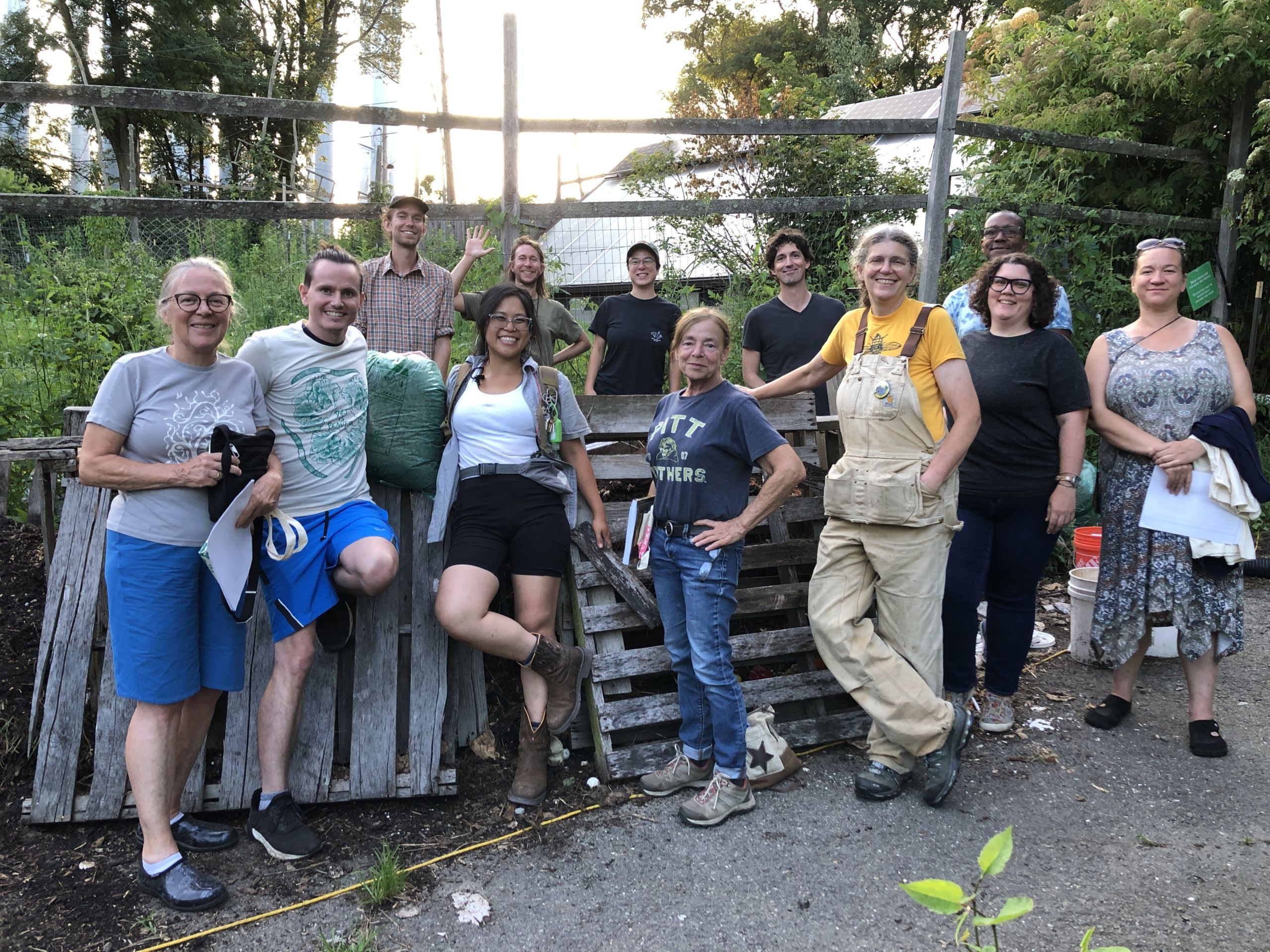
Thanks to your support, this year a dozen gardeners got their hands dirty learning the intricacies of making organic compost, effectively diverting food waste from landfills, nurturing healthy soils, and helping to reverse climate change. In a time of rising temperatures and catastrophic loss of topsoil across the planet, your support has made a positive impact to build healthy soil right here in Pittsburgh.
One of the biggest challenges folks face when gardening in urban lots is unhealthy soil due to contamination or compaction. Our Community Composter School training series was designed to address this. For gardeners and farmers, compost is sometimes called “black gold” for its value in making soils healthier and richer in nutrients. Diverting food waste from landfills and transforming it into organic compost also happens to be one of the most effective proven solutions to reversing global warming. Thank you for supporting this local approach to tackling a global problem.
From April through September, participants in this intensive training took a deep dive into topics from soil microbiology to community outreach strategies. Field trips to the Stanton Heights Community Composting Program, Hamnett Place community garden, and Garfield Community Farm gave them hands-on experience with various techniques and methods for building soil. The program culminated with the land stewards establishing community composting sites in Bellevue, Duquesne, Homewood, Penn Hills, Sharpsburg, Stanton Heights, and Tarentum. The sites are designed for accessible neighborhood-scale composting so that neighbors and community gardeners can drop off food scraps and yard debris to help rebuild our urban soils.
These newly minted master composters intend to continue to educate and reach out so that others can join in. “I can see a horizon where every neighborhood with a community garden has at least one shared composting location,” said Jasen Bernthisel, Grow Pittsburgh’s project manager for the program. He added, “The true horizon would be every other block could have its own neighborhood composting site, as well as the people-power built around it to teach and foster collaboration and learning across the greater region.”
With your help, we hope to offer this Community Composter School again next year to train and deploy another cohort of master composters to help rebuild our urban soils and foster connections among community members.

